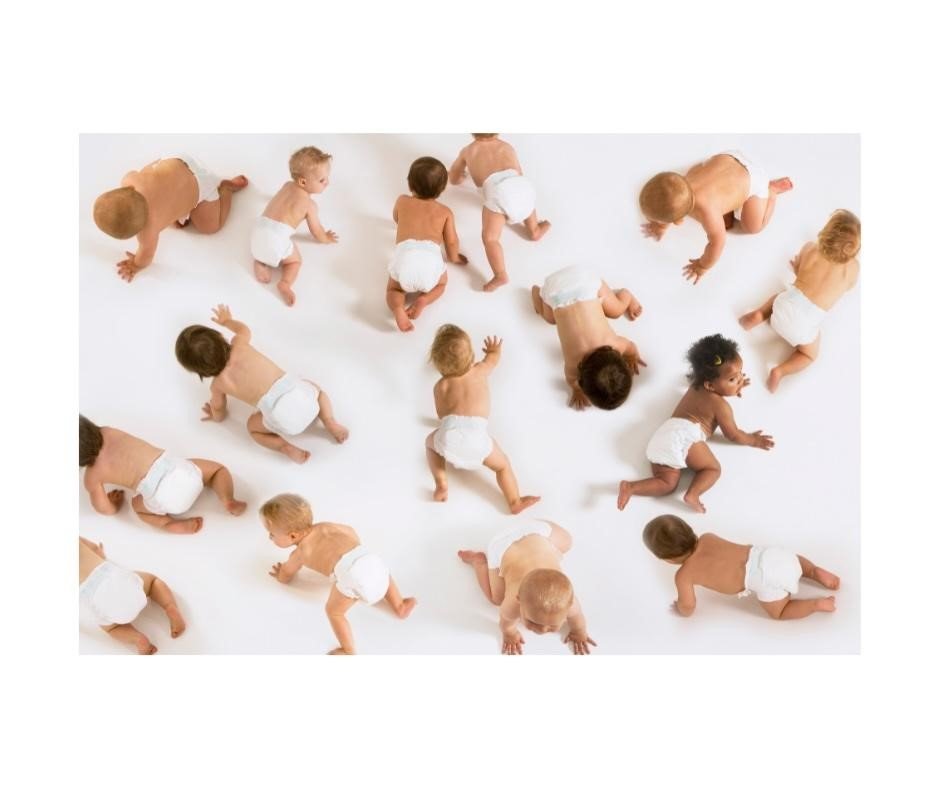Hey, Did You Crawl?
You’ve probably heard how crucial this is, affecting learning, productivity, attention, ease in transitions, and countless other aspects of life. And it's true—how we spend our earliest years can have a significant impact on our lives. If an infant spends time exploring movements and being loved, they stand a good chance of having an easier time later in life.
But many of the people I work with who experience challenges in their bodies as they age had their early movement and bonding time interrupted.
Take Paula, for example. Her mother had lost a baby a year before Paula was born. As a result, Paula’s mother never put her down on the floor, constantly picking her up and carrying her. This led to high anxiety and a sense of shakiness and insecurity whenever Paula entered a room with new people. Through our work together, we discovered that Paula couldn’t walk forward without experiencing disorientation and trepidation. Although she had masked this for 50 years, she felt stuck, trapped, and confused about why her self-esteem would suddenly plummet, leaving her feeling dizzy and out of control.
Part of Paula’s Body Recovery plan involved exploring Developmental Movement Therapy.
What became apparent was that Paula lacked a clear sense of her “front space” because she had been carried as an infant and toddler. She had not developed the ability to orient herself efficiently in space. We worked together to help her engage the reflexes she had been underutilizing, and I taught her the developmental movements she needed to progress forward in space. Soon, Paula was able to stroll into a room, grounded through her feet, using her voice assertively to ask for what she wanted—or to go get it herself! No more waiting around!
Paula was thrilled to be moving in the right direction, but she was especially pleased that she was no longer feeling nauseous and dizzy.
Developmental Movement Therapy can re-pattern the nervous system, improve focus, and help you move with greater ease, strength, and grace. It’s based on the way babies naturally learn to move. These movements are the building blocks of all forms of movement, so everyone can benefit. Developmental Movement Therapy is a core part of the Somatic Body Recovery program because it transforms people physically, emotionally, and relationally.
If this sounds like something you might be interested in as a way to help yourself heal, sign up for a Body Recovery Discovery Call, and we can talk about it together.
All my best,
Margery

